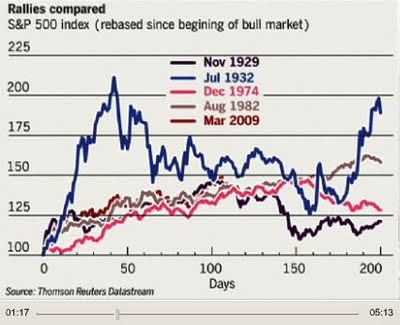Woodstock at 40
Warning: This is not an economics/finance post.
Woodstock at 40-year anniversary.
China got a problem in foreign reserves
One country accounts for over 30% of world’s total foreign currency reserve (see the chart below). This is not normal.
This huge piles of money can’t get back into China, because it will cause inflation. In one way or another, it needs to be “recycled”.
The recycling previously took the form of buying US treasuries, partly contributing to the flood of global liquidity and housing bubble. Now after the bubble burst, and the yields on US treasuries almost give nothing in return, China faces a problem in finding its next “dollar recycling” channel.
US government offered to sell inflation-protected treasuries, but China still seems to be very worried about the prospect of the dollar.
There are not many options left on the table. Since when you got the money but you don’t know where to spend?
Option 1: acquire foreign assets, especially foreign natural resources to secure the supply of China’s high growth. This is what China has been doing, but I am sure it will stir some controversies. Nobody will feel comfortable in selling their natural resources to a country that is non-democratic and to firms largely controlled by the government. Well, you will hear “new colonism”, that’s for sure.
Option 2: use the dollar to purchase advanced manufacturing and research equipment that will increase China’s productivity in the future. This seems to be a smarter way to spend the money, but China faces a lot of import restrictions, mainly from the US. The US policy makers still treat China as a potential rival, not ally. That’s the problem.
Compare historical rallies
Summer is near its end; time to ponder where the market will be headed next. After almost 50% rally since March, the market has gone too far ahead of the real economy, in my opinion. Every recession is different, but with jobless rate sure to go higher and no real demand from the consumption, the history may repeat itself: this does not bode well for the market, especially after a big housing bubble.
(click on the graph to watch the video; source: FT)
Humility and economic forecasting
We didn’t forecast “Great Depression”; We failed to forecast this “Great Recession”.
Obama’s economists painted a rosy picture for their stimulus plan, now it turned out to be deadly wrong; Should we trust the Fed to do the job then?
Watch the following video clips and have some humility in prediction and forecasting.
The Sq-root recovery
An intelligent discussion on where the US economy and the market are headed next. You have heard about V-shaped recovery, W, U, L, but what is a square-root recovery?
Hot money on China’s plate
With China's stock market up 97% this year, hot money is pouring in, reports WSJ:
Hot money is again flowing into China, and that could put Beijing in a quandary. Should the torrent continue, it could complicate policy makers' efforts to battle inflation. Should it reverse, property and stock prices will be hit hard.
There isn't an easy solution to this, nor does Beijing have much control over the situation. Hot money, or the speculative inflows that aren't explained by direct investment or trade, finds its way around China's tight grip on capital flows.
Its return became evident when Beijing reported last month that foreign-exchange reserves rose $178 billion, the most ever, in the second quarter. Analysts at UOB Group estimate that as much as $83 billion of this could be hot money, much of that flowing into stock and property markets and contributing to forming bubbles in both. The Shanghai Composite is up 97% so far this year.
Two factors could keep the funds flowing in: expectations that Beijing will soon begin to raise interest rates, and a sense that, after being halted for a year, the revaluation of the yuan could resume. The yuan's revaluation has always been a motivation for hot-money investors.
Beijing could discourage the inflows by signaling that it won't live up to these expectations. A change in global sentiment would do the same: As investors retreated around the world in late 2008 and early 2009, some $173 billion of hot money flowed out of China, UOB estimates.




![[china money]](https://s.wsj.net/public/resources/images/AM-AG526_CMONEY_NS_20090807015215.gif)
![[The further China moves away from economic crisis, the greater the anticipation that yuan revaluation will continue. ]](https://s.wsj.net/public/resources/images/OB-EF182_chinah_D_20090807133711.jpg)